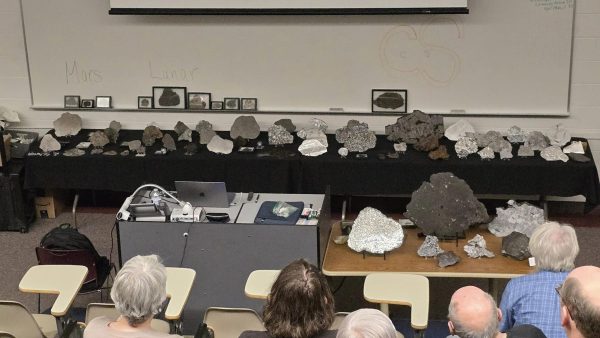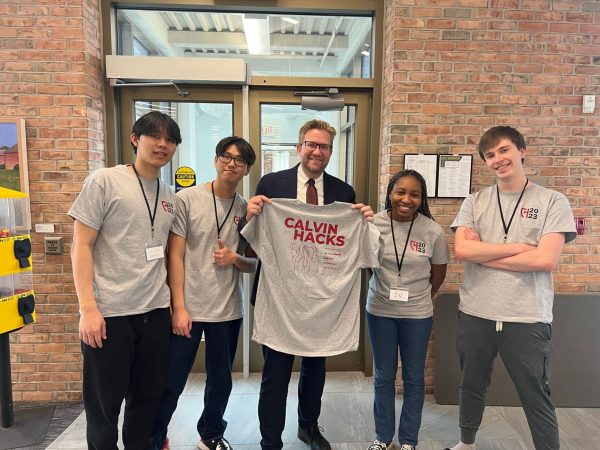What it takes to become Zero-Waste
On December 6, 2018, Henry Kingma, a member of the Environment Stewardship Committee (ESC) and a recycling coordinator, presented on how Calvin College can become a zero-waste community. Despite Calvin being far from being zero-waste, Kingma’s presentation sparked intrigue for both the students and the faculty that attended. During his presentation, he shared various steps on how Calvin can become a zero-waste community through social and physical changes.
Kingma started his presentation by questioning our responsibility towards God’s creation. We are called to be stewards and caretakers of the environment, and Kingma explained that one way we can do this is by managing waste well — that is, proper recycling, composting and assortment of trash.
Kingman also explained the history of Calvin College’s recycling program. The early recycling program was introduced to Calvin in the 1980s, where paper, cardboard, glass and other material were recycled; scrap and metal were added in the ’90s. Currently, Calvin recycles many things, including batteries, lamps, cardboard, etc. Kingma emphasized that recycling doesn’t only reduce trash tonnages but also saves money since little trash has to be incinerated or transported to landfills. In his presentation, Kingma also illustrated that recycling doesn’t cost the school to have the recycling program. Thus, the college needs to take a few steps, which include physical and social changes.
Under physical changes, Kingma emphasized the improvement of clear signage on trash, recycling and compost bins. This helps people to know how to sort and dispose of their waste.
In his words, Kingma said that the elimination of stand-alone trash cans will also reduce the rate of waste at Calvin.
He further highlighted the importance of campus-wide composting. According to Kingma, composting is still expensive due to high expenses of composting equipment. He indicated that there is a need to introduce more equipment for correct and easy composting around campus. Under social changes, Kingma highlighted the need to reward zero-waste champions
(these competitions could be done amongst dorms) as this will encourage others to do the same. He also encouraged consistent education on how to recycle, compost and dispose of our trash. “Some people may still need guidance on what to do,” commented Kingma.






